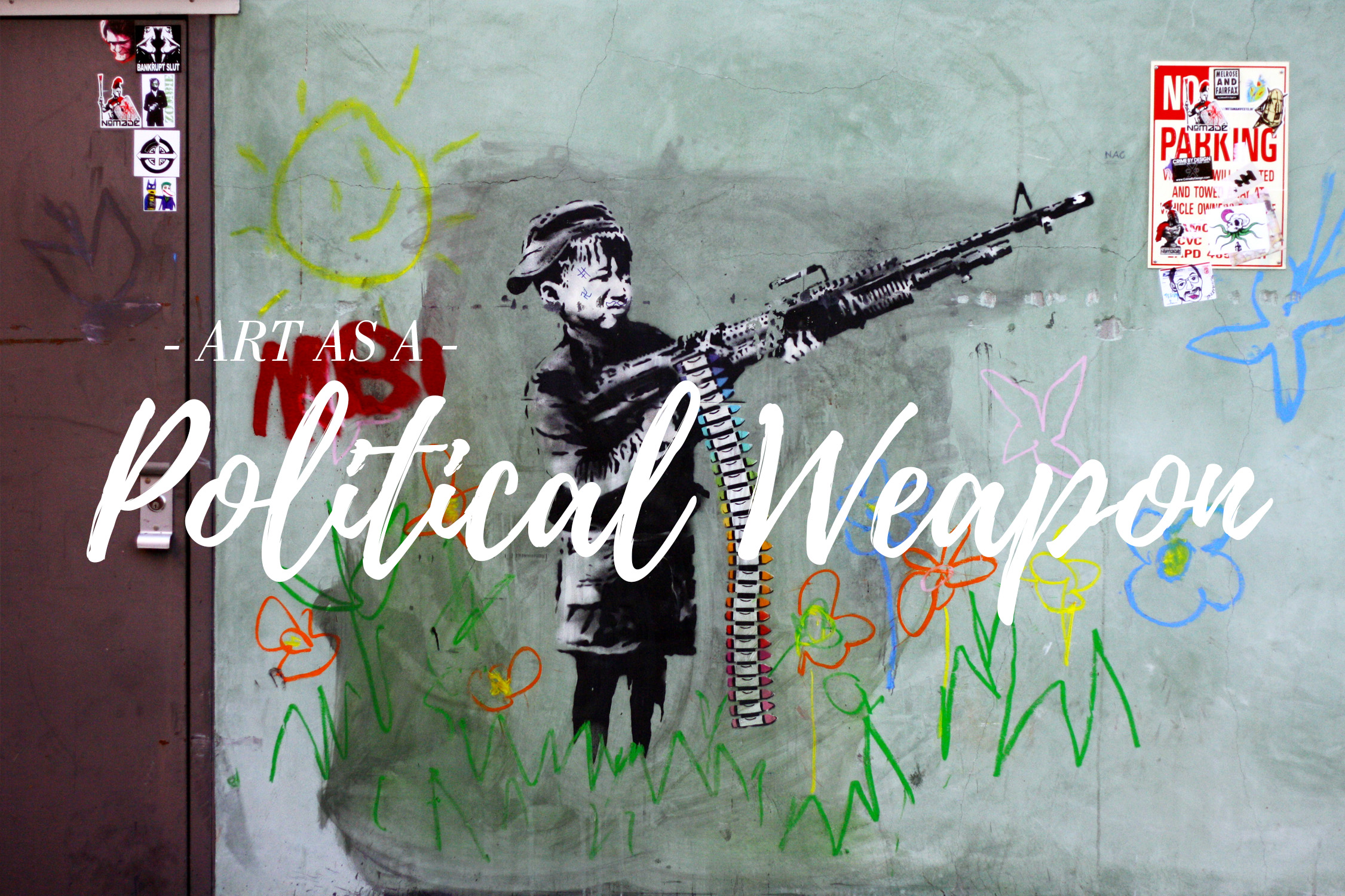It is a yesterday’s yet intriguing news: CIA and its art funds were behind the success of some of the most modern and contemporary artists. First confirmed by a former CIA agent in 1990s, CIA was reported to be a key patron, secretly providing financial and curating support to abstract artists including Jackson Pollock, Robert Motherwell, Willem de Kooning and Mark Rothko, during the 1950s to 1960s. What did they do that? There is an obvious reason according to Independence:
Because in the propaganda war with the Soviet Union, this new artistic movement could be held up as proof of the creativity, the intellectual freedom, and the cultural power of the US. Russian art, strapped into the communist ideological straitjacket, could not compete.

Artist: Havi Shanz
Throughout the history, politics and art has always been closely linked. As early as in the 16th century Italy, the protestant reformists had used Albrecht Dürer’s propaganda-like prints to brand themselves as a religious group calling for a return to an austerity in faith and abolition of institutions. Art has always been an important part of our society’s cultural identify and our mass media, and it has never ceased to be a mean of political influence or expression by either politicians, activists, or artists themselves. Today I would like to explore how such phenomenon is still very much alive in the contemporary setting. Sometimes, even as a part of fund misuse scandal.
One prime example today of such art support for potentially political reason is located in United Arab Emirates. With its newly opened Louvre Abu Dhabi hosting 600 pieces in permanent collection and 300 loaned from France, UAE is on its way of becoming a global art centre.
Investments on museums such as Louvre Abu Dhabi and Guggenheim Abu Dhabi are part of a bigger project, which is conceptualized as building “cultural infrastructure” under its Abu Dhabi Vision 2030. Aiming to share “Abu Dhabi’s unique legacy” and promote it “as an international cultural destination”, many of these investment is funded through Abu Dhabi Tourism & Culture Authority. However, just as SAGE researcher Yasse Elsheshtawy has pointed out, these efforts could also be viewed as an attempt to exploit “the worldwide trend of cultural commodification and the emphasis on global culture”. As Elsheshtawy has pointed out, the emirates seemed to be more concerned in giving the appearance of vital art scene than actually engaging the public, by hosting most of the art events in high end hotels or exclusive events. The public reaction to these projects was also reported to be primarily associated with a sense of national pride over surrounding regions, which Elsheshtawy has characterized as an act of “cultural imperialism”. I have also noticed that the museums themselves, including the Louvre Abu Dhabi and Guggenheim Abu Dhabi, are built on the Saadiyat island. It is the same island, where Tourism Development & Investment Company (TDIC), the real estate developer arm of the TCA Abu Dhabi, has engaged in various luxurious projects such as the five-star St Regis Saadiyat Island Resort.

So great! All art exhibitions are politicized and we have to pick teams going museums now? Even though the many critics questions the political motive of cultural investment, which has proven to be an effective tool of rebranding a nation’s cultural and global identity by CIA, this phenomenal can also be viewed as a confirmation of artworks’ innate power in spearing and cultivating ideas. Rather than accusing the government of funding art for a wrong cause, a more efficient action in my opinion, would be to educate the public to be more critical when approaching any types of media. Once the public become more self-conscious of the media’s or art’s influence on their views, they would be able to recognize potential manipulation and thus guard themselves against conforming to any populistic beliefs. Money is not inherently evil. As long as such support or funding does not impair artists or individuals’ independent judgment, personally I have no problem against carrying a political motivation when supporting art.
[The Abu Dhabi Art Fair this weekend is hosting various events on emerging artists and offering services like temporary child care as an attempt to better engage the public with art]
I am by no means a professional politics commentator and I understand this might be a controversial topic. That is why I am interested in know what you think. What’s your take on art or culture as a political tool? Leave a comment to let us know your thoughts or prove me wrong if there is anything you don’t agree.





